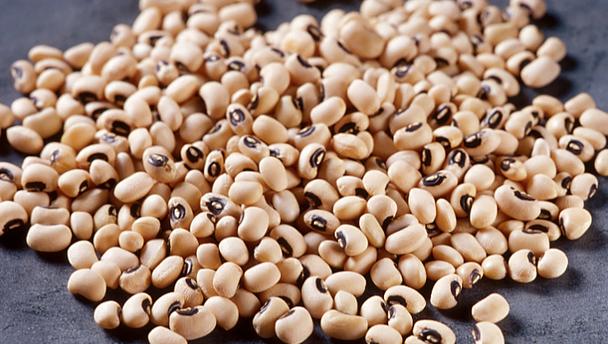Agribusiness
NAQS tackles agro-exports to meet international standards
Published
9 years agoon
By
Olu Emmanuel
By FRANK OYAKHILOME
WITH the national embarrassment Nigeria faced in the second time European Union (EU) ban of the exported beans due to the discovery of high levels of storage chemicals pesticides, dead insects and faces of rodents in some of the shipped consignments, the Nigeria Agricultural Quarantine Service (NAQS) is now poised to ensure that agricultural exports meet the required international standards, especially in line with the International Plant Protection Convention (IPPC); Office International des Epizootics (OIE) representing the World Organization for Animal Health, WTO/Sanitary and International Trade of Endangered Species (CITES) and SPS conditions of the importing countries.
NAQS whose operations are guided by the enabling legislation enacted by the National Assembly and SPS regulations and schedules is currently carrying out a Survey analysis and sampling of Primary Agricultural Commodities in Nigeria which started about eleven months back (November, 2015) and is a member of National Biosafety Management Committee.
Led by Dr. Vincent Isegbe a graduate of Veterinary Medicine whose career span several years in the Ministry of Agriculture from a Veterinary officer with the Federal Department of Livestock, Federal Ministry of Agriculture and Rural Development in 1989 to the position of an Assistant Director before joining the Nigeria Agricultural Quarantine Service as one of the pioneer staff, when it was commissioned in 2008.
Isegbe’s vast experience within the agricultural sector of the Nigeria economy took him to be the head of the Collaboration, Planning and Partnership (formerly Collaborations and Commercial Service) division before becoming the Head of the Animal Quarantine Department a position he held until he became the Coordinating Director in 2015 the chief executive post.
The NAQS boss in an earlier interview has set out the ground plan work of the institution which he says are in three phases upgrading the laboratory services, acquiring equipment to test more agricultural commodities in other to avoid further occurrence of the EU mess-up. In all, Isegbe with his team are looking at a holistic approach to tackle the export and import of agricultural produce finished and unfinished.
Another plan by the institution is to train her officials both locally and internationally to be able to handle any development present or future and more so to engage or better still sensitize major stakeholders in the agro-export value chain. Isegbe noted that when everyone within the value chain from the farmgate to export desk – is sensitized the institution and the nation are likely to have less challenges exporting agro-commodities.
NAQS has set it priorities right by stating the step-by-step procedures an exporter or importer of agricultural produce should follow. In Plant (crop produce) export requirement, NAQS stated in its official site that Importing countries of the world need phytosanitary certificate to accompany Nigeria plant export, stressing that Request forms for certifications are also available at the designated agricultural quarantine offices listed in our contacts page.
A phytosanitary certificate contains statements that quarantine inspection has been carried out by the accredited officers of the NAQS and the consignment of plants/plant products is pest-free at the time of examination. The certification also states whether or not any form of treatment has been carried out.
More so, the request for phytosanitary inspection of plants consignments is done by prospective exporters through the completion of the appropriate forms well in advance and presentation of the consignment for inspection because this is mandatory in the interest of the exporter and the country.
ALSO SEE: Agro- bussiness: Osibajo lauds Utomi for $136m agric investment
Of important note is the fact that a phytosanitary certificate is issued after the payment of a fee by the user and only one phytosanitary certificate is issued to cover a consignment. Agro-produce exported from Nigeria which are not covered by phytosanitary certificate stand the risk of being rejected or destroyed on arrival at the importing country and this is usually at the expense of the exporter the official website stated.
As to the import requirements, an import permit which contains a statement of conditions to be met before importation is allowed into Nigeria is required, as exporting countries also demand for import permit in order to meet the requirements of the importing country. However, the importer is expected to complete an import permit application form, noting that the issuance of import permit would depend on the risk involved. Furthermore, a permit which is valid for 12 months may not be issued if the plant type required is prohibited or if the country of origin is known to be a high risk area.
With other units in the management set up NAQS is tailored to move Nigeria agriculture to meet the international standards and give monetary value to all agro-commodities. Still under the Ministry of Agriculture and Rural Development, the institution laboratory is already be calibrated to its international counterpart. The laboratories are located at the post-entry station and pre-entry stations of the plant, veterinary and fisheries quarantine units. NAQS is currently arranging for the procurement and supply of laboratory equipment, reagents and upgrading of existing facilities. In addition, the major NAQS diagnostic laboratories and SPS facilities are located at Ibadan (Moor Plantation), Lagos (Ikeja, Ibafo and Victoria Island), Kano (Airport Road, Ungogo), Port-Harcourt (Rumu – Dumanya, Federal Secretariat) and Maiduguri (Ngomari). The laboratory management staffs also recently participated in the Training workshop organized by UNIDO on basic “ISO/ IEC 17025 FOR TESTING AND CALIBRATION LABORATORIES”.
Trending

 Health5 days ago
Health5 days agoDeclassified CIA memo explored concealing mind-control drugs in vaccines

 Entertainment7 days ago
Entertainment7 days agoSimi addresses resurfaced 2012 tweets amid online backlash

 Crime5 days ago
Crime5 days agoSenior police officers faces retirement after Disu’s appointment as acting IGP

 Education7 days ago
Education7 days agoPeter Obi urges JAMB to address registration challenges ahead of exams

 Health7 days ago
Health7 days agoNAFDAC issues alert on suspected revalidated SMA Gold infant formula

 Comments and Issues6 days ago
Comments and Issues6 days ago20 Critical Fixes to Save Nigeria’s Democracy from Electoral Fraud

 Football6 days ago
Football6 days agoMartínez ruled out of Everton clash with calf injury

 Latest6 days ago
Latest6 days agoICPC yet to respond to El-Rufai’s bail request as arraignment date looms


